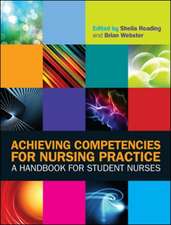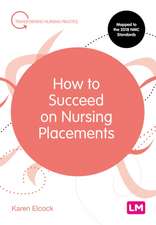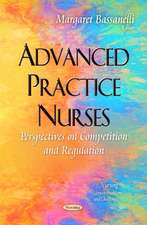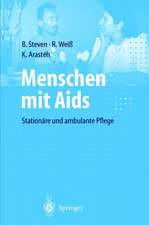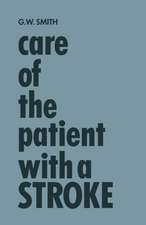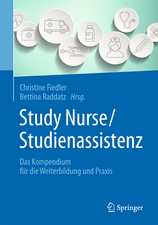The CLES-Scale: An Evaluation Tool for Healthcare Education
Editat de Mikko Saarikoski, Camilla Strandell-Laineen Limba Engleză Paperback – 24 mai 2018
It is aimed at researchers and clinical professionals who contribute to students’ clinical learning at universities and healthcare organisations. Itis especially suitable as a learning tool for clinical staff mentorship training courses and master’s level healthcare education studies.
| Toate formatele și edițiile | Preț | Express |
|---|---|---|
| Paperback (1) | 226.62 lei 39-44 zile | |
| Springer International Publishing – 24 mai 2018 | 226.62 lei 39-44 zile | |
| Hardback (1) | 334.79 lei 3-5 săpt. | |
| Springer International Publishing – 13 dec 2017 | 334.79 lei 3-5 săpt. |
Preț: 226.62 lei
Preț vechi: 238.55 lei
-5% Nou
Puncte Express: 340
Preț estimativ în valută:
43.36€ • 45.40$ • 35.97£
43.36€ • 45.40$ • 35.97£
Carte tipărită la comandă
Livrare economică 07-12 aprilie
Preluare comenzi: 021 569.72.76
Specificații
ISBN-13: 9783319876047
ISBN-10: 331987604X
Pagini: 119
Ilustrații: VI, 119 p. 11 illus., 6 illus. in color.
Dimensiuni: 155 x 235 mm
Ediția:Softcover reprint of the original 1st ed. 2018
Editura: Springer International Publishing
Colecția Springer
Locul publicării:Cham, Switzerland
ISBN-10: 331987604X
Pagini: 119
Ilustrații: VI, 119 p. 11 illus., 6 illus. in color.
Dimensiuni: 155 x 235 mm
Ediția:Softcover reprint of the original 1st ed. 2018
Editura: Springer International Publishing
Colecția Springer
Locul publicării:Cham, Switzerland
Cuprins
Introduction and concept definitions.- Part I - Clinical learning environment - theoretical and practical principles.- 1. The main elements of clinical learning in healthcare education.- 2. Methodological issues and development process of the CLES scales.- 3. Country validation of the CLES-scale; linguistic and cultural perspectives.- 4. The CLES scale as a national quality tool for clinical learning and teaching.- Part II – Ensuring the high quality of a clinical learning environment.- 5. A good clinical learning environment as an organisational challenge.- 6. Empowering the professionalization of nurses trough mentorship: implementation of the CLES framework in an international project.- 7. Cooperation between the clinical staff and the clinical teacher.- Part III – The CLES framework - New perspectives and areas for development.- 8. How can patient relationships and patient experiences be better utilisedin student’s clinical learning?.- 9. New ways and environments of using the CLES framework.- 10. Possibilities of e-learning and new information technologies in clinical teaching.
Recenzii
“The book is intended for health educators and researchers as well as organizers of clinical mentorship programs. It would be a useful tool for people in any of these settings and would meet their needs. … The book is well written and covers the subject thoroughly in a succinct manner. It is well organized with numbered headings and references at in each chapter … .” (Mary E. Boudreau, Doody's Book Reviews, April, 2018)
Notă biografică
Dr Mikko Saarikoski has been a nurse teacher in Finland since the 1980’s and a Research & Development Manager of Healthcare Education (2006-2010). His major work focused on researching and developing research instruments for quality assurance of clinical training of nursing students. Dr Saarikoski received his PhD in 2002 and his academic qualifications for a docent post have been accepted by the University of Turku in 2011. The area of his docent post is in Didactics of nursing science.
MNSc Camilla Strandell-Laine has a long experience as a nurse teacher at the bachelor’s degree level in nursing education especially as a clinical teacher supervising nursing students during the clinical practicum and educating mentors in student supervision. She also has teaching experience at master’s degree level. She is currently working as a Doctoral Candidate in the Doctoral Programme of Nursing Science in the University of Turku at the Department of Nursing Science. Her main research areas are mobile technology use in the supervisory process during the clinical practicum and clinical learning outcomes of nursing student.
MNSc Camilla Strandell-Laine has a long experience as a nurse teacher at the bachelor’s degree level in nursing education especially as a clinical teacher supervising nursing students during the clinical practicum and educating mentors in student supervision. She also has teaching experience at master’s degree level. She is currently working as a Doctoral Candidate in the Doctoral Programme of Nursing Science in the University of Turku at the Department of Nursing Science. Her main research areas are mobile technology use in the supervisory process during the clinical practicum and clinical learning outcomes of nursing student.
Textul de pe ultima copertă
This contributed book is the first to focus on the Clinical Learning Environment and Supervision (CLES) framework. The origin instrument version of the CLES-scale has been published in Finland in 2002, and has generated wide European and International interest. The CLES network has pursued Europe-wide research. This book brings a unique perspective of students’ clinical practicum in healthcare education and discusses how the national quality system can be used in the continual development of student supervisory systems. The book first presents the theoretical and practical principles of clinical learning, then defines the challenges of clinical learning for mentorship, clinical staff and nurse teachers. This volume also offers examples of the benefits and future perspectives of the CLES framework in healthcare education.
It is aimed at researchers and clinical professionals who contribute to students’ clinical learning at universities and healthcare organisations. Itis especially suitable as a learning tool for clinical staff mentorship training courses and master’s level healthcare education studies.
It is aimed at researchers and clinical professionals who contribute to students’ clinical learning at universities and healthcare organisations. Itis especially suitable as a learning tool for clinical staff mentorship training courses and master’s level healthcare education studies.
Caracteristici
Provides a comprehensive description of the Clinical Learning Environment and Supervision (CLES) framework Presents healthcare students’ clinical practice as a key factor in professional development Clarifies the connections between a good learning environment, quality of care and advanced supervisory methods



